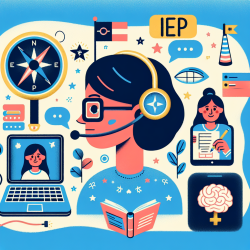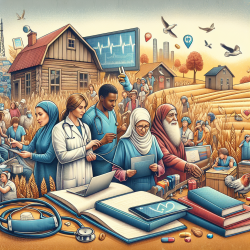Key Findings and Implications for Practitioners
Parents of children with disabilities in the Sekhukhune district encounter numerous challenges, ranging from cultural beliefs about disability to the scarcity of resources and professional support. The study identifies three main themes:
- Beliefs about Disability
- Resources for Children with Disabilities
- Psychosocial Experiences
Beliefs about Disability
Parents had varied explanations for their children's disabilities, including witchcraft, medical reasons, and accidents. Understanding these beliefs is crucial for practitioners as it affects how parents approach treatment and care. Practitioners should consider these cultural contexts when developing intervention strategies.
Resources for Children with Disabilities
The study highlights the scarcity of assistive devices and professional support in rural areas. Parents often resort to using inadequate tools like wheelbarrows, which can cause secondary disabilities. Practitioners should advocate for better resource allocation and develop community-based rehabilitation programs.
Psychosocial Experiences
Parents face significant emotional and social challenges, including isolation and time constraints. Practitioners can support parents by creating support groups and offering psychosocial services. These initiatives can alleviate the emotional burden and improve the overall well-being of families.
Recommendations for Practitioners
- Advocate for Better Resources: Work with local governments and NGOs to secure funding for assistive devices and professional services.
- Develop Community-Based Programs: Implement mobile clinics and field visits by therapists to make services more accessible.
- Establish Support Groups: Create platforms for parents to share experiences and support each other emotionally.
- Consider Cultural Contexts: Develop culturally sensitive intervention strategies that align with parents' beliefs and practices.
Conclusion
The findings from this study offer a roadmap for practitioners to enhance their skills and create better outcomes for children with disabilities. By understanding the unique challenges faced by parents in rural areas, practitioners can develop more effective and culturally sensitive interventions.
To read the original research paper, please follow this link: The experiences of parents of children living with disabilities at Lehlaba Protective Workshop in Sekhukhune district of Limpopo province.










